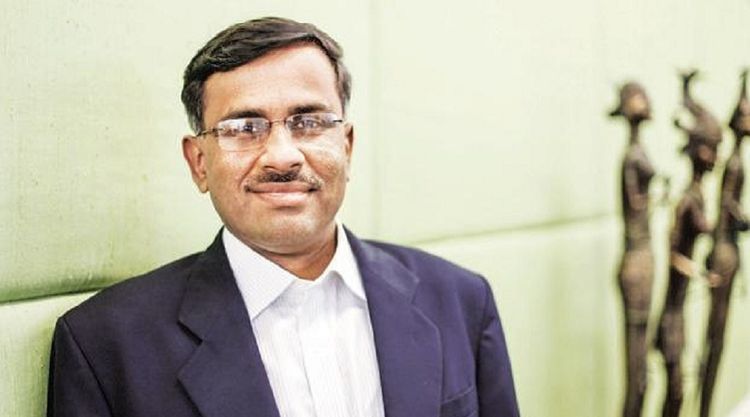In a bid to make itself “future ready” and minimize risks from high-frequency trading, the National Stock Exchange of India Ltd (NSE), the country’s largest, is betting heavily on newer technologies such as artificial intelligence (AI) and blockchain.
The idea, according to Vikram Limaye, managing director and chief executive officer (CEO) of NSE, is to enhance the efficacy of the capital markets, improve surveillance operations to prevent manipulation of its systems, and enable more efficient reporting to regulators.
“This business is all about technology and risk management. Our clients are getting more sophisticated and are using newer technologies. We have to ensure we understand all the developments around us and the applications of these newer technologies in our business,” Limaye said in an interview on the sidelines of an event titled FutureTech 2018, organized by the stock exchange.
Computers already conduct a significant portion of trades on stock exchanges including high-frequency trading (HFT), which uses complex algorithms and comprises a major portion of algo-trading. It is estimated that HFT drives about 25% of the turnover for cash equities and about 36% of the turnover in the derivatives segment.
NSE wants to take this a step further with AI, especially machine learning, because humans cannot handle the vast quantities of structured and unstructured data (from social media sites, etc.,) that is available today.
To begin with, NSE will sharpen its focus on using machine learning to “identify market patterns, for cognitive automation, enhanced judgement, and enhanced interaction”, according to Limaye.
For instance, he noted that cognitive process automation can “accelerate greatly the automation of discrete, low-complexity tasks using cognitive capabilities to mimic human behaviour, hence avoiding the long and slow process of programming that today’s automation scripting requires”.
Such systems, he added, also have lower error rates than humans.
To help human employees “make better-informed decisions, consider new strategies and approaches, and ultimately provide better outcomes faster”, NSE also hopes to take advantage of cognitive knowledge management systems that are “used to draw on inductive modelling and research to produce timely insights on markets and clients, and inform recommendations to financial advisors, or detect fraudulent or risky behaviour”, according to Limaye.
AI, he added, also makes it possible to provide a high degree of customization, cost effectively and at scale, by automatically analysing each client’s behaviour.
According to Sankarson Banerjee, chief technology officer (projects), NSE has also set up a working group on blockchain. “We are doing a number of proofs of concept (PoCs) around blockchain and some PoCs around KYC (know your customer). We are looking at PoCs in trade finance, and are looking at also improving our internal processes using blockchain—eg. using smart contracts to make things simpler,” he added.
These moves come at a time when the country’s market regulator, the Securities and Exchange Board of India (Sebi), has asked NSE to refile an application made by it, seeking to settle a probe into the alleged lapses at its co-location facilities.
In its draft offer documents filed on 30 December 2016 with Sebi, NSE pointed out Sebi had directed it to conduct “an independent forensic examination by an external agency into the co-location facilities…”. Co-location allows brokers to rent server space and bandwidth from NSE’s data centre, and allows for faster data movement.
The findings by the external agency included the fact that the (internet-based tick-by-tick, or TBT) system architecture of NSE was “prone to manipulation”.
As on 30 September 2016, NSE had a pan-India, high-speed network, which “supported more than 181,524 terminals connecting to our platforms”, the stock exchange noted in its draft offer.
NSE’s initial public offering, or IPO, has been delayed due to this probe.
Limaye said NSE is working closely with the market regulator to sort out the issues, even as it is banking on AI technologies to minimize trading risks.
Globally, hedge funds are already using AI technologies like machine learning to predict, and take advantage of, price level movements.
Stock exchanges, too, have begun using AI to secure trading. For instance, Japan Exchange Regulation and Tokyo Stock Exchange, Inc. said on 19 March that they will apply AI technologies to market surveillance operations to “detect such misconduct as market manipulation”.
However, implementing machine learning also requires data scientists and a robust regulatory ecosystem.
Limaye acknowledged that “ML adoption cannot be created within these (NSE’s) walls alone. It requires a partnership between regulators, member institutions and other capital market players.”
Moreover, NSE recently organized a hackathon, which was attended by over 37 teams and 250 developers from different data science backgrounds.
Limaye concluded, “We put together problem statements with the help of other capital market players and were very excited with the results that emerged.”
Also read:
India: NSE in talks with Sebi to tweak startup listing norms




